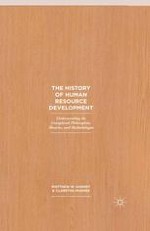2016 | OriginalPaper | Chapter
The Industrial Revolution
Authors : Matthew W. Gosney, Claretha Hughes
Published in: The History of Human Resource Development
Publisher: Palgrave Macmillan US
Activate our intelligent search to find suitable subject content or patents.
Select sections of text to find matching patents with Artificial Intelligence. powered by
Select sections of text to find additional relevant content using AI-assisted search. powered by
The end of the Middle Ages also brought about a significant reduction and almost extinction of the craft economy in which farmers, artisans, and miners were the predominant workforce (Bass, 1994). The Industrial Revolution of the late 1800s through the early 1900s ushered in the mass production economy and, with it, bureaucratic procedures and the notion of the worker as part of a larger organization (Carnevale, 1991). The American Industrial Revolution showed technological and organizational change in the areas of transportation and communication, roads, canals and engineering, railroads, the telegraph, manufacturing—including the Lowell system in the textile mills with power-operated processes—agriculture, and networks and systems (Williams, 2008). Jensen (1993) also noted widespread technological and organizational change that led to “declining costs, increasing average but decreasing marginal productivity of labor, reduced growth rates in labor income, excess capacity, and—ultimately—downsizing and exit” (p. 2). Energy in preindustrial America came from human labor, animal power, water power, and wood. The key concern then was human labor and the best use thereof. Capital markets played a major role in eliminating excess products and capacity of human resources and “although the vast increases in productivity associated with the nineteenth century industrial revolution increased aggregate welfare, the large costs associated with the obsolescence of human and physical capital generated substantial hardship, misunderstanding, and bitterness” (p. 2).
